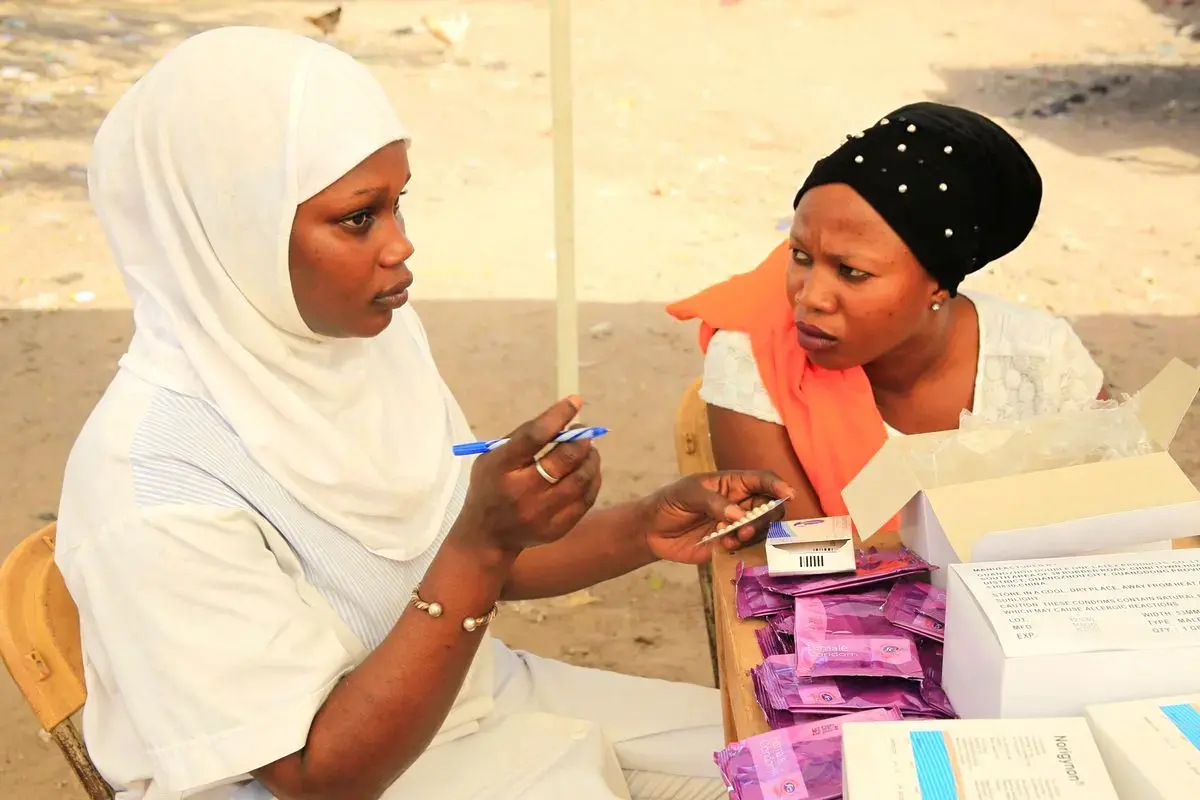Access to safe and voluntary Family Planning is a human right, is central to gender equality and women’s empowerment, and is a key factor in poverty reduction.
In The Gambia, UNFPA works with the Government of The Gambia and other partners to ensure a steady and reliable supply of quality contraceptives, strengthen the national health system, advocate for policies supportive of family planning and gather data to support this work.
Currently, women of Reproductive age (15-49) account for about 569,994 of the country’s population. According to the preliminary results of the 2019/2020 Demographic and Health Survey (DHS), the unmet need for Family Planning is currently at 24%, the Contraceptive Prevalence Rate (CPR) for modern contraceptive is estimated at 19% and the Total Demand for Family Planning among women is about 43%. The country’s Total Fertility Rate (TFR) has seen a decline from 5.4% in 2013 to 4.4% in 2019/2020. Overall, 14% of adolescents have begun childbearing. However, the percentage of teenagers who have begun childbearing is higher in rural areas (20%) than in urban areas (11%). In the 5 years preceding the 2019/20 DHS, 42% of episodes of contraceptive use were discontinued within 12 months and the most common reason for discontinuation was wanting to become pregnant (37%). The Gambia has a young population with lower median ages of 17.8 years and 18.6 years respectively for males and females.
The Government of The Gambia, in the National Health Strategic Plan (2014-2020), has articulated a need to reduce maternal and newborn mortality in the country using Family Planning as a key strategy for realising this goal. However, there are several challenges facing the Family Planning programme especially with regards to rumors and misconceptions. Key among them are the belief that Family Planning is associated with promiscuity, that is against religious teachers or that it leads to infertility, among many others misconceptions. These challenges are coupled with strong opposition from men who are the key decision makers in the home. Other challenges include shortage of health providers, insufficient capacity to provide services and inadequate infrastructure and supplies especially in the rural areas and hard-to-reach communities.
Overall, contraceptive use has more than doubled in The Gambia from 2013 to 2019-20. This can be attributed primarily to increased use of all methods (from 9% in 2013 to 19% in 2019-20). The total demand for Family Planning among currently married women increased from 34% in 2013 to 43% in 2019-20. 40% of the total demand is satisfied by modern methods.
Currently, UNFPA (through UNFPA Supplies) is the sole provider of modern contraceptive commodities for all public health facilities in The Gambia. In order to realise access to information and services for women in communities furthest behind, UNFPA Supplies has supported the establishment of a Community Based Family Planning Program in The Gambia also called the Community-Based Distribution (CBD) programme, and has since expanded and strengthened the programme to bring services closer to over 150 underserved and hard-to-reach communities. With UNFPA support, the CBD program is being run by an NGO called Gambia Family Planning Association (GFPA). In the course of the year 2020, GFPA registered 6,123 New Acceptors of which 75% was under the CBD programme. Out of 13,048 revisits registered, 79% was under the CBD programme.
The regional medical stores are equipped with computers and the CHANNEL Software for proper management of the flow of supplies in the country’s health facilities. The CHANNEL software database is an inventory tool that was provided by UNFPA Supplies to manage the stock situation in the various health facilities. It is vital in ensuring availability and minimizing stock-outs and automates the data collection and reporting requirements of the regional stores and facilities at which it is used. This encourages good practices in logistics and supply management. In addition to being used to monitor Family Planning commodities, the software is also being used for the management of all medicines within the National Pharmaceutical Services.
Out of a total of 146 health facilities, 64.4 per cent offer at least five modern contraceptive methods compared to 98.5 per cent that offer at least three modern contraceptive methods. Generally, new Family Planning Acceptors have been on a steady increase from 47911 in 2015 to 53765 in 2016 which is an increment of 10.8%, to 59773 in 2017 which is an increament of 10%, to 62143 in 2018 which is an increment of 3.8%, to 80918 in 2019 which is an increament of 23% before a decrease of 40% to 48,257 in 2020 was recorded due to the COVID-19 pandemic.
UNFPA has also supported the development of a National Family Planning Policy, a Costed Implementation Plan and a Communication Strategy for the Ministry of Health, in order to aid effective Family Planning programming to benefit everyone, everywhere in The Gambia.



